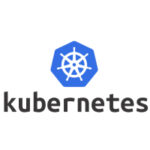Cloud Computing Infrastructure Services
Operating at scale
The importance of cloud infastructure
In today's demanding digital world, it’s important for companies to be agile, responsive, and able to break into new markets quickly and efficiently. This means developing digital products that are reliable, performant, and highly scalable. These aspects that drive software product development success are increasingly reliant on proven architecture and cloud computing infrastructure. With the right software development partner, companies can count on cloud computing infrastructure services that are fitting for the right software product.


The first step of cloud computing
How to start cloud infrastructure development
The first part of establishing a cloud infrastructure is choosing a hosting partner and determining an architecture plan. Asymm can help companies both build and migrate to cloud based infrastructures, allowing for a number of benefits with scaling and driving application and software product development service performance.
What is Cloud Computing Infrastructure and Hosting
Cloud computing Infrastructure refers to the physical and computerized tools used to run applications and software projects.
Understanding cloud computing
Cloud computing infrastructure and hosting, or just cloud hosting, is a type of virtualization where resources are dynamically allocated and de-allocated to meet the current needs of an application or software project. These resources include applications, networks, servers, and storage devices to accommodate the dynamic needs of modern web-based applications.

Cloud Providers and Technologies We Use
Scalable management
Utilizing cloud computing and infastructure
Cloud providers allow you to utilize off site infrastructure and management solutions to deploy, manage, and scale applications. Cloud infrastructure has become the foremost method of distributing and managing both enterprise and consumer applications. Cloud infrastructure helps companies scale through a number of integrations and automation capabilities such as continuous integration and continuous improvement pipelines (Ci/Cd).
Scaling and managing development
The practice of isolating development environments to simplify dev-ops processes has grown recently, leading to the containerization as a service space. Products and processes that augment the deployment, scaling, and management of containerized applications have since become highly utilized across application type, size, and company function. Here are a few of the technologies that we use for these purposes: containerization, scaling, and dev-ops management purposes.
Partner with us
Schedule a call to learn more about how we help companies develop high scalable products with cloud computing infrastructure.
Applications for Cloud Architectures and Hosting
Applications and application models that are well suited to cloud infrastructure and hosting.

The four main types of software applications
Transparent leadership
These application models are built and designed to scale with quick replication and diminishing scaling costs, creating economies of scale for the business model and software installations alike. These types of products come in all shapes, sizes, use cases, etc. The following software models are Software as a Service (SaaS), Platform as a Service (PaaS), Infrastructure as a Service (IaaS). In this list, we also address hardware hosting as it is an alternative to the following models and still used today with many companies for specific use cases, as digital transformations are still underway.
Enterprise Solutions Need Commercial Infrastructure
Enterprise application types that are developed for scale and replication:
Saas Applications are one of the most commonly developed applications in the software development age that we’re currently in. Selling software as a service is a proven model in which a company develops an application, or a suite of applications for a specific use case or many, and sells it to businesses or consumers alike using a subscription model. The antithesis to a SaaS based pricing model for a software application would be the licensing structure that has quickly been phased out of software pricing models over the last decade. Saas products leverage cloud computing and infrastructure services for scalability, easy replication, distribution, security, and other key benefits that create simplified user experiences for the subscriber to the Saas product. Cloud infrastructure for Saas companies allows their software to operate and scale in the cloud and allows users to disregard managing the specific underlying hardware, network, operating systems, and storage of the application locally.
Key Drivers of Infrastructure and Hosting Adoption
Benefits and perks
Why transition to cloud infrastructure
Companies today are leveraging cloud infrastructure and improvements in dev-ops processes that allow them to develop systems and solutions with improved architecture and efficiency. Here’s a few of the reasons and benefits companies are transitioning to cloud infrastructure services for the deployment, management, and scalability of their applications.

Why Hire Asymm for Infrastructure and Hosting Services

Personalized solutions for your commercial needs
Asymm can provide your company with the infrastructure advisory and implementation services needed for the deployment and management of either new or legacy applications that will utilize cloud infrastructure services. We can customize our solutions to suit your specific business needs, and preferred application hosting architecture. We work with proven cloud hosting providers, and are able to leverage our experience with diverse architectures, applications, user base sizes, and other variables to help guide you to the right infrastructure services.








